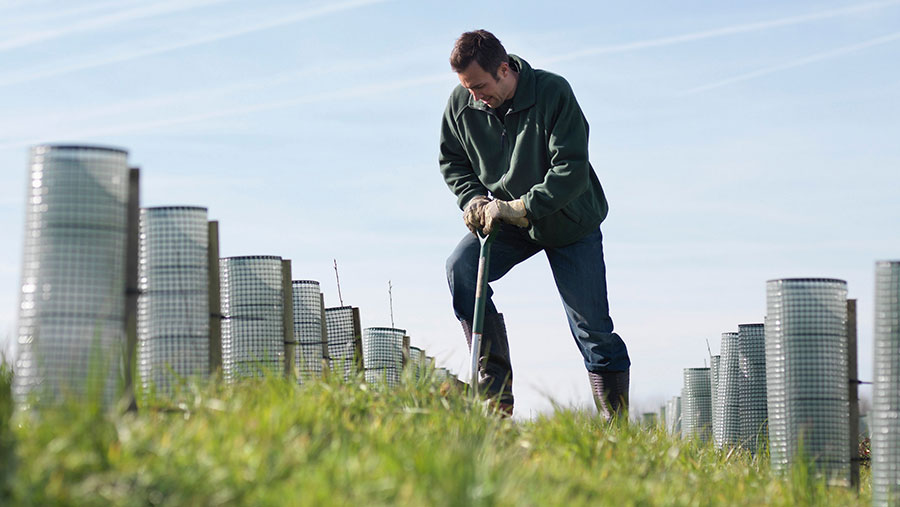Tree-planting trial fails to replace carbon lost from soil
 © Cultura/REX/Shutterstock
© Cultura/REX/Shutterstock Planting huge numbers of trees to mitigate climate change is “not always the best strategy” – with some experimental sites in Scotland failing to increase carbon stocks, a new study has found.
Experts at the University of Stirling and the James Hutton Institute analysed four locations in Scotland where birch trees were planted on heather moorland and found that, over decades, there was no net increase in ecosystem carbon storage.
The team, led by Dr Nina Friggens, of the Faculty of Natural Sciences at Stirling, identified that any increase to carbon storage in tree biomass was offset by a loss of carbon stored in the soil.
Dr Friggens said: “Our study considered whether planting native trees on heather moorlands, with large soil carbon stores, would result in net carbon sequestration – and, significantly, we found that over a period of 39 years, it did not.
“This work provides evidence that planting trees in some areas of Scotland will not lead to carbon sequestration for at least 40 years – and, if we are to successfully manage our landscapes for carbon sequestration, planting trees is not always the best strategy.”
Tree trials
The tree-planting experiments, in the Grampians, Cairngorms and Glen Affric, were set up in 1980 and 2005.
The research sites enabled the team to assess the impact of tree planting on vegetation and soil carbon stocks, by comparing these experimental plots to adjacent control plots consisting of original heath vegetation.
Working with Dr Ruth Mitchell and Prof Alison Hester, both of the James Hutton Institute, Dr Friggens measured soil respiration – the amount of carbon dioxide released from the soil to the atmosphere.
Measurements were taken at regular intervals during 2017 and 2018, along with soil cores taken by Dr Friggens and Dr Thomas Parker, to record soil carbon stocks and calculate tree carbon stocks by using non-destructive metrics, including tree height and girth.
The study recorded a 58% reduction in heather moorlands, wit stocks 12 years after the birch trees had been planted on the heather moorland – and, significantly, this decline was not compensated for by the gains in carbon contained in the growing trees.
It also found that, 39 years after planting, the carbon sequestered into tree biomass offset the carbon lost from the soil – but, crucially, there was no overall increase in ecosystem carbon stocks.
Other benefits
The Woodland Trust says there are other benefits to planting trees on farms. Trees can help increase biodiversity, provide shelter, prevent soil erosion and reduce flooding.
